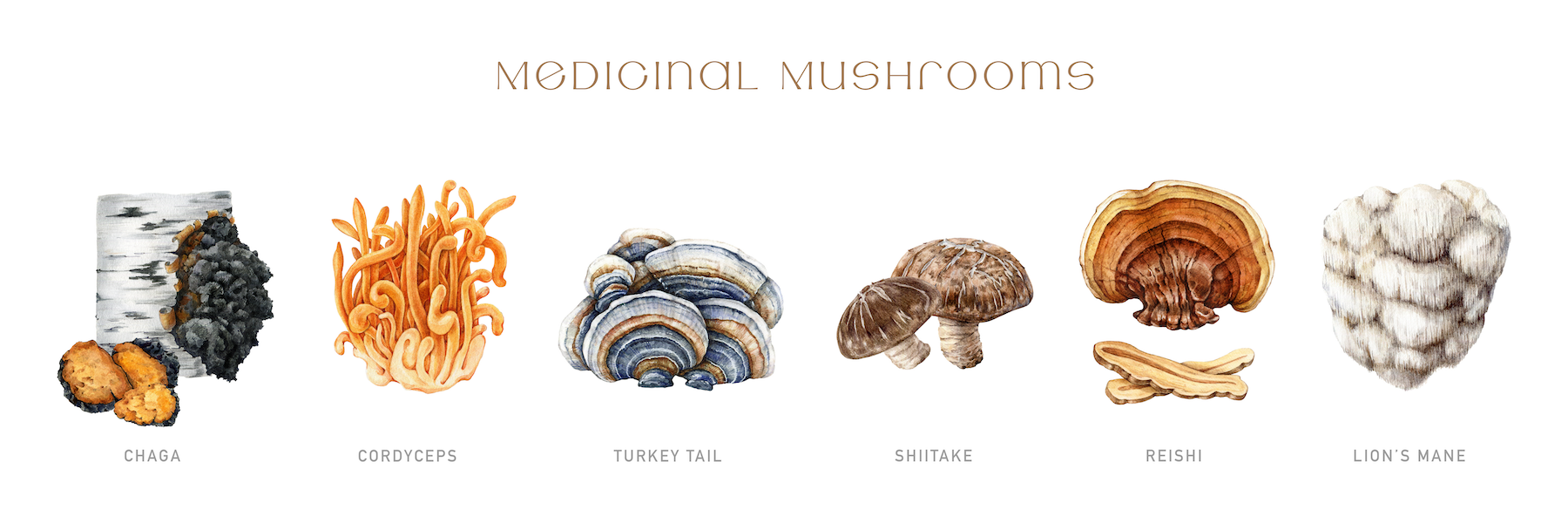Mushrooms with special health benefits
As most of you know, my last Health and Wellness article was about the benefits of eating mushrooms and integrating mushrooms like Shitake, Portobellos, Enoki, Morels, Chanterelles, etc. Today, I will talk a little bit about mushrooms that have more than nutritional benefits – mushrooms that have medicinal properties. Disclaimer: Even though psychedelic mushrooms do have medicinal properties and have been used for healing in many ancient and traditional societies, I will not be discussing the benefits of these mushrooms in this article.
Functional, also called medicinal mushrooms, in addition to being nutrient dense, provide a myriad of health benefits ranging from immune support, variety of antioxidants, natural and non-addictive energy and stamina, balance blood sugar, cognitive and brain health, nervous system support, and support a healthy inflammatory response.
LIONS MANE (Hericium erinaceus) – SUPPORTS HEALTHY NERVOUS SYTEM FUNCTION
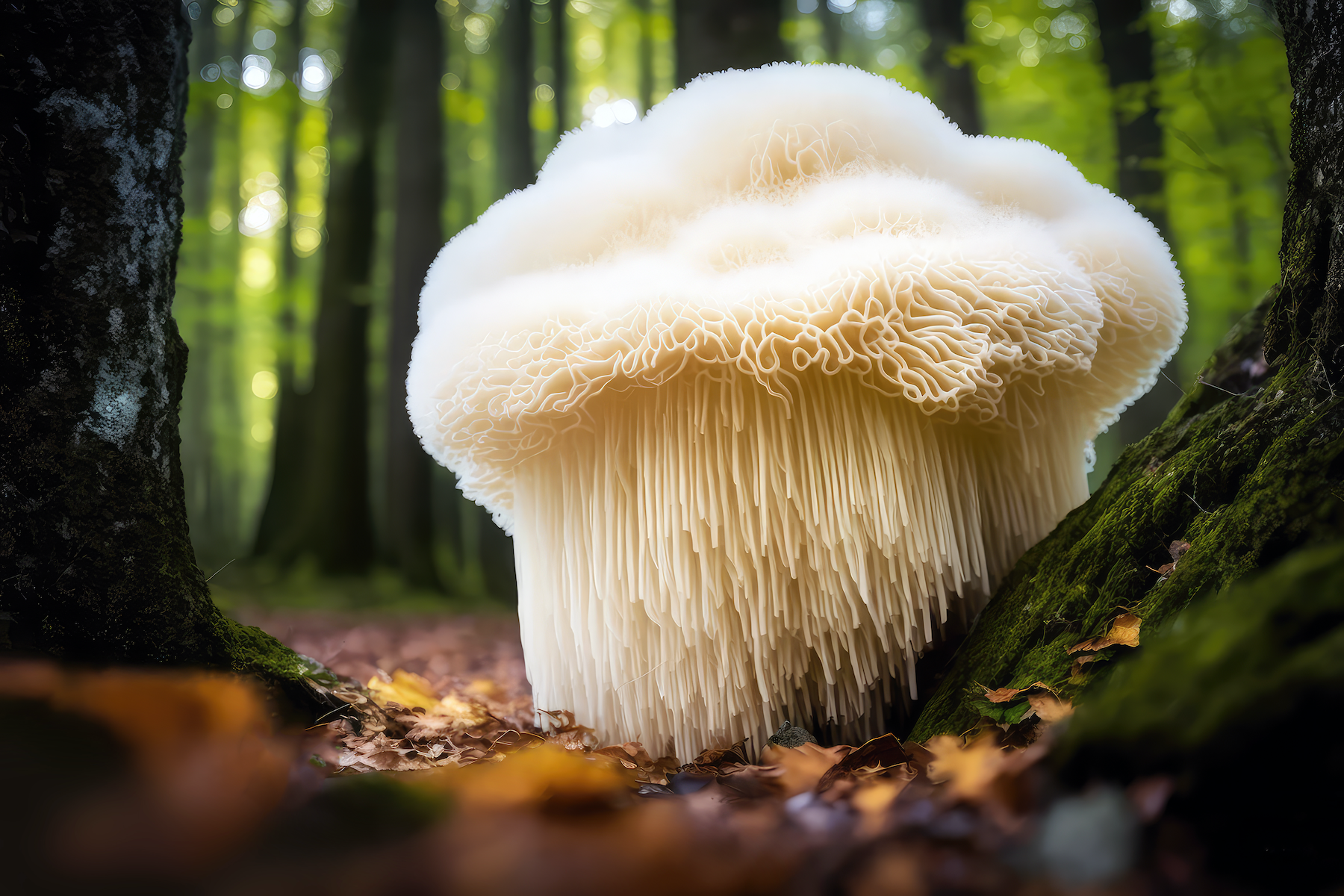
This helpful fungi is well known to promote cognitive function and contains beta-glucans (immune-modulating antioxidants and neuro-protective phytonutrients). Two compounds, hericenones and erinacines, have shown in research studies to help induce the synthesis of the neuropeptide NGF (Nerve Growth Factor) in nerve cells1.
In TCM (Traditional Chines Medicine) it is used to support the spleen in its digestive functions, energy production, water regulation, and for stress related disorders (neurasthenia) and lack of energy. In Japan, its been used by monks to increase concentration during meditation. In Native American traditions, it was used to stop bleeding.
Lions Mane has great nutritional values and is high in Thiamine (B2), Niacin (B5), Riboflavin (B3), magnesium, zinc, and potassium. It has a similar taste and texture to lobster and is used by top chefs in their culinary creations.
CHAGA (Inonotus obliquus) – healthy skin and digestion
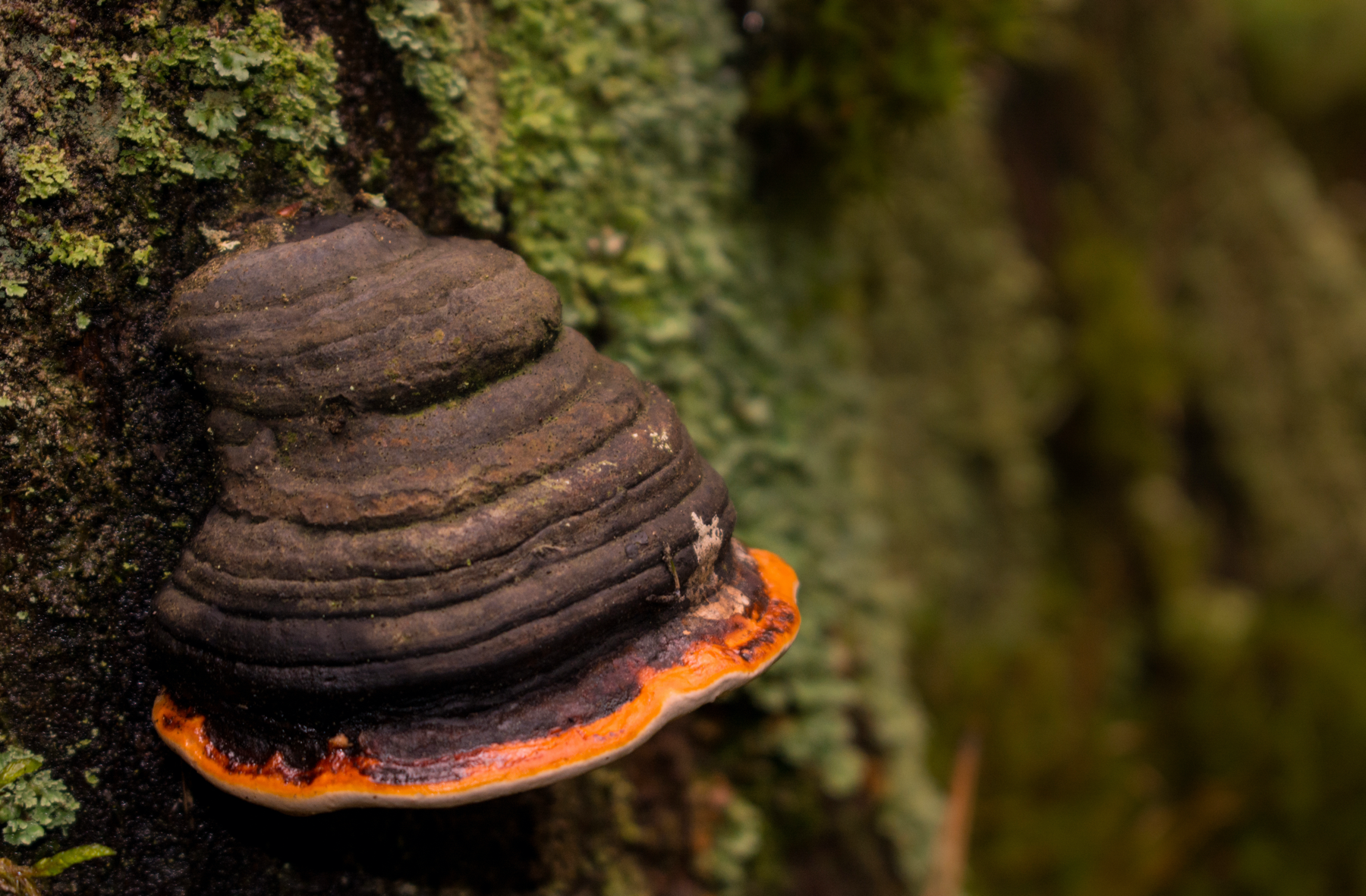
Chaga is referred to as a mushroom, but is actually a woody canker or growth on birch trees. Many of the health promoting compounds of Chaga actually come from or a transferred from the birch tree, compounds such as betulin and betulic acid. Chaga is one the most well studied mushrooms in the Western Medical world and has very promising research results as a powerful antioxidant, digestive system support, immune and inflammation modulator2.
Chaga contains anti-microbial compounds and is considered adaptogenic, meaning it can help the body regulate its stress responses and related hormone production. Chaga contains anti-oxidants, beta-glucans (helps regulate cholesterol and blood sugar), polysaccharides (helps promote healthy blood sugar, liver, intestinal, and heart health), and phytosterols (fights cancer cells and viruses).
Research shows it can reduce inflammation particularly in the gut, fights harmful bacteria, and helps lower blood sugar. Research also shows it can prevent the growth of cancer cells. Traditionally, Chaga was used in old Russia for stomach health.
People with diabetes and people on blood thinners need to consult with the physician to discuss potential interaction with medications.
Reishi (Ganoderma lucidum) also called lingzhi – Mushroom of Immortality
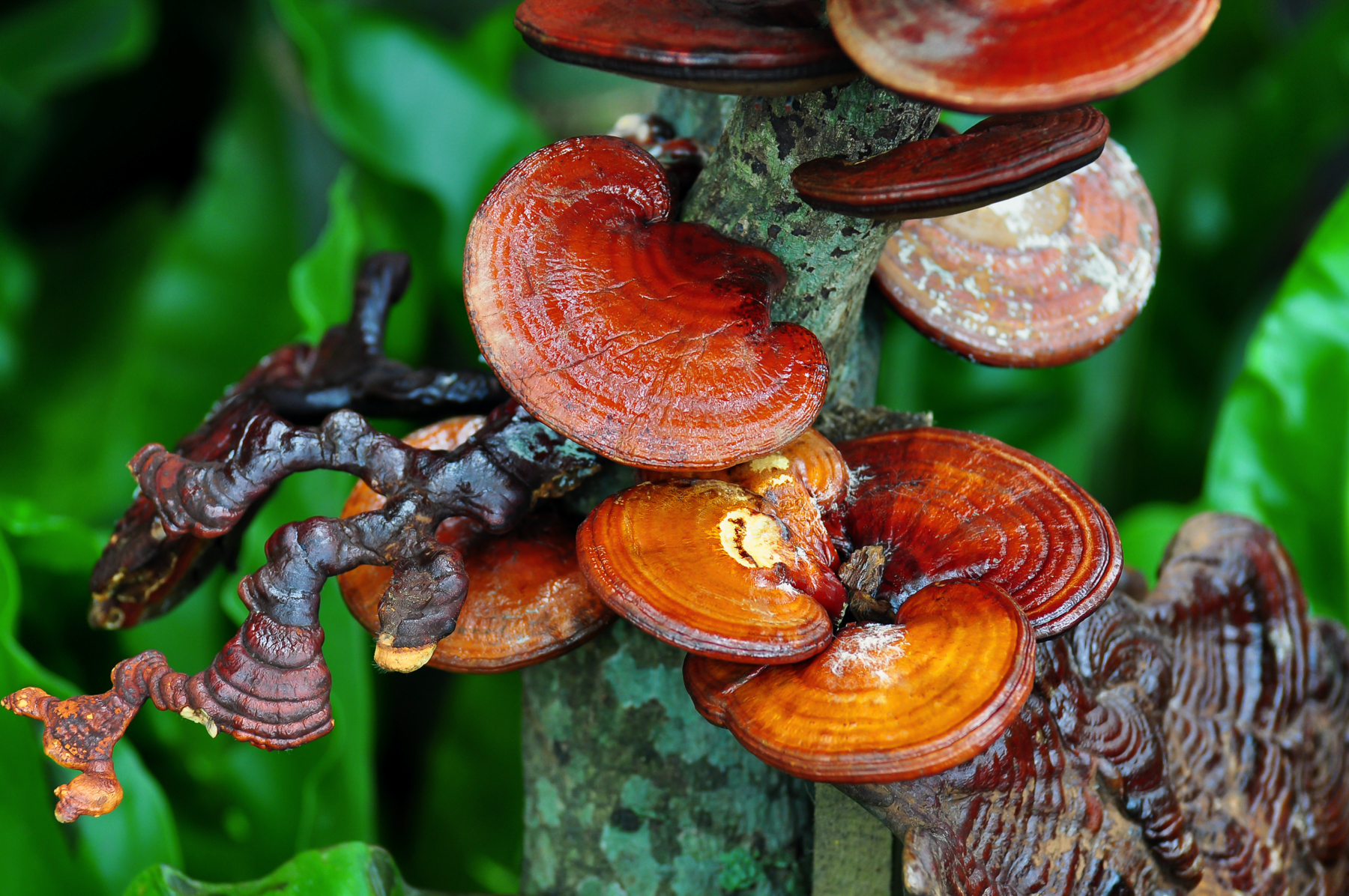
The polysaccharides in Reishi are found to help with immune function if taken over a period of time, making it a great immune modulator. Research also shows that Reishi is a great mushroom to help with restlessness and difficulty sleeping as it calms the mind and reduces stress and restlessness. Reishi can help balance blood sugar levels and aids in lung and respiratory health.
Reishi has been used in TCM to help induce calmness and has been treasured by Chinese Royalty for its longevity promoting properties. Its has been listed as one of the most treasured superior herbs in TCM due to its long life, healthy aging, and qui boosting properties. It has been used in traditional Asian medicine to strengthen the heart, improve memory, and to detoxify the body.
Reishi contains beta-glucans, anti-oxidants, and triterpenoids (helps regulate blood sugar and blood pressure). Reishi also stimulates the production of “natural killer cells”, immune cells that target malfunctioning cells, including cancerous cells3.
Turkey tail (Trametes versicolor) – boost immune system
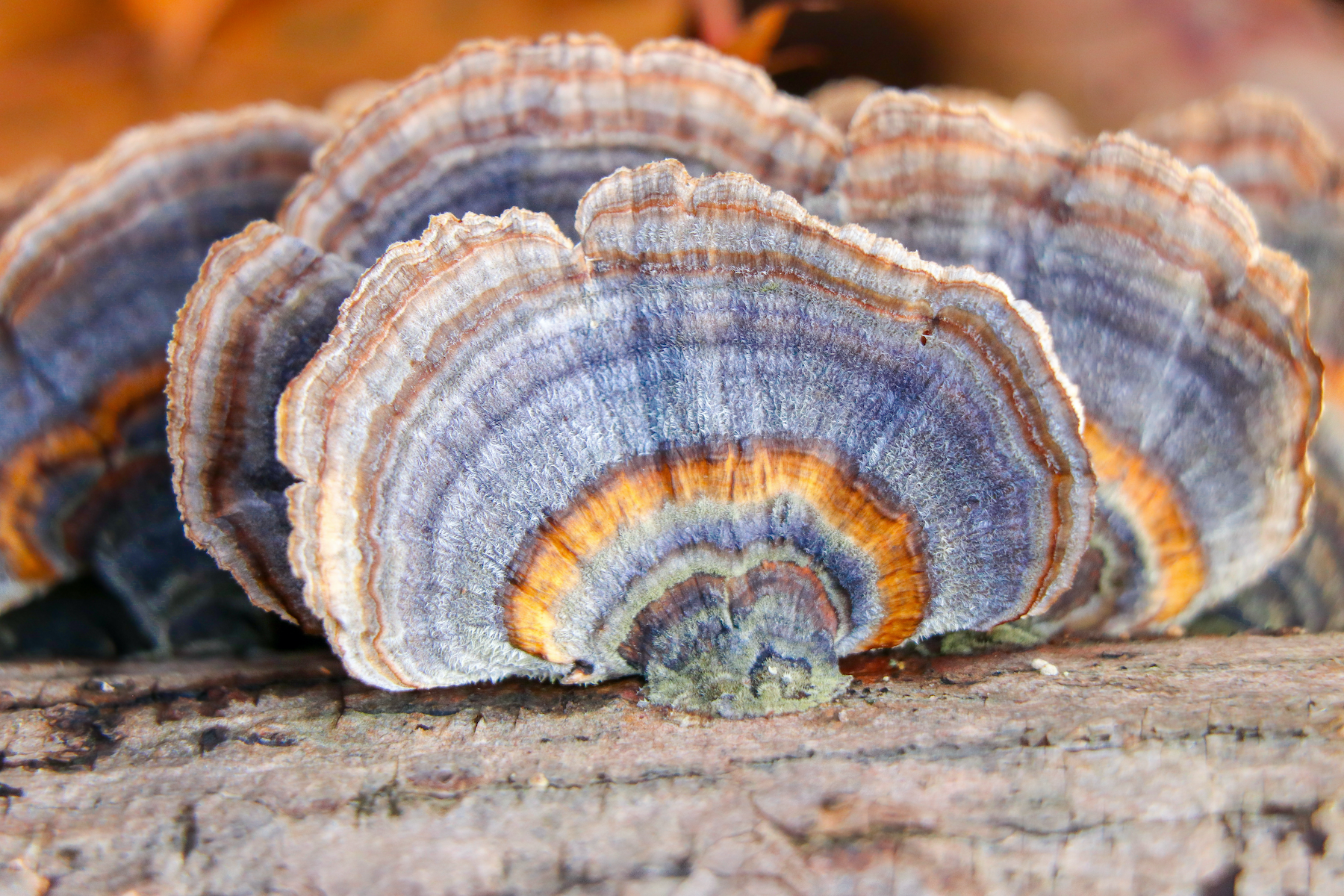
Turkey tail supports immune function by e.g. stimulating cytokine production, thereby increasing the production of natural killer cell. Turkey tail can also enhance the performance of other immune cells, acting as an immunoregulator. It also has adaptogenic properties4.
Traditionally, Turkey tail mushroom has been in used in TCM to support digestion, lung health, fluid regulation, and general vitality. Turkey tail has one of the highest amount of beta glucans of all the medicinal mushrooms which help with immune function.
Turkey tail contains two polysaccharides, PSP and PSK, which help to slow cancerous growth and boost immunity. It is also used along with traditional cancer treatments to improve the patient’s response to the treatments. Like many other mushrooms, Turkey tail is high in Selenium, Vitamin, D, and B3.
Cordyceps (Cordyceps sinensis or Cordyceps militaris) -increases lung capacity and increases energy
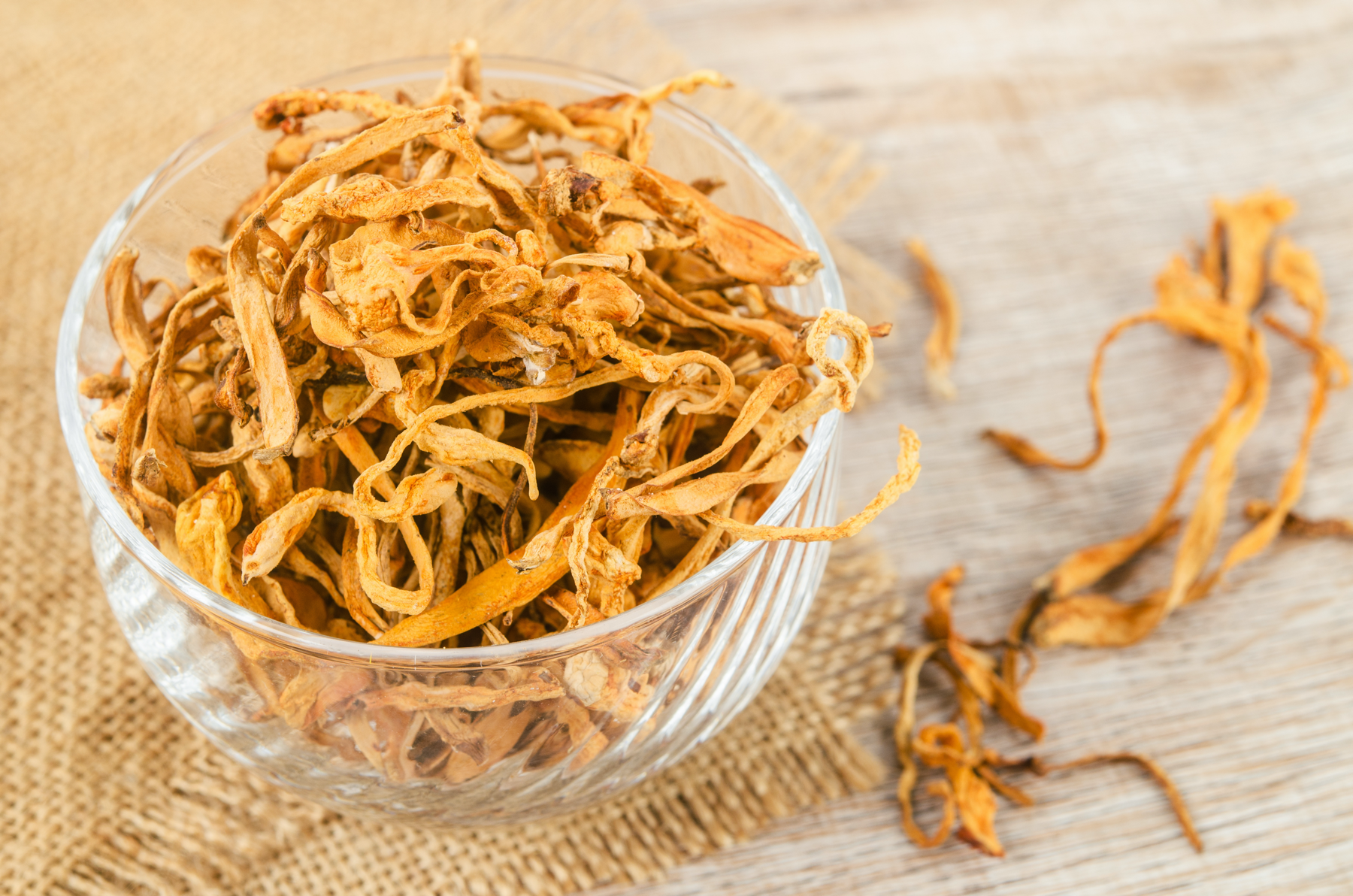
There are many different kind of Cordyceps fungi, however the ones used in TCM and studied in the West are the Cordyceps sinensis and militaris. In animal studies, Cordyceps has shown to increase the production of ATP (chemical compound produced in the body that is the fuel/energy for every cell function). Therefore, Cordyceps is a great supplement to boost energy for work outs or when one feels sluggish. Studies have shown that Cordyceps improves exercise performance in older people.
Traditionally, Cordyceps has been used in TCM and Tibetian Medicine as a tonic for its ability to restore and revitalize energy due to fatigue, exhaustion, chronic stress, and aging. Cordyceps is viewed in TCM as the most stimulating, warming, and powerful of all the mushrooms. Cordyceps is also very beneficial for kidneys and lung health.
Research shows that Cordyceps has anti-inflammatory properties especially inflammation related to asthma, Parkinsons Disease, hepatitis, and rheumatoid arthritis. Research also suggests that it can help regulate energy metabolism and benefits in reducing obesity and lowering blood sugar5.
Shiitake (Lentinula edodes)– the fragrant mushroom. Support cardiovascular health, immune system, liver health.
-1800.png?width=1800&height=1200&name=AdobeStock_shiitake%20mushroom%20(Lentinula%20edodes)-1800.png)
Research shows that Shiitake can reduce C-Reactive Protein (a blood marker showing inflammation) and increases IgA (Immunoglobulin A) which are antibodies against bacteria, viruses, and fungi.
Shiitake are considered the most popular mushroom in the world and have been used in Asian cuisine for thousands of years.
In China, the name translates to “fragrant mushroom” and has long been considered an elixir of life.
Research shows Shiitake can help fight obesity, boost the immune system through immunoregulation, decrease inflammation, destroys cancer cells, supports cardiovascular health, and is antimicrobial (kills harmful bacteria and viruses) and supports a healthy gut biome6.
Nutritionally, Shiitake contains all 8 essential amino acids (amino acids the body cannot make itself and needs to obtain from food sources) and linoleic acid along with many key minerals and vitamins.
Maitake (Grifola frondosa)– the Dancing Mushroom/ Hen of the Woods. Supports healthy blood pressure and immune function
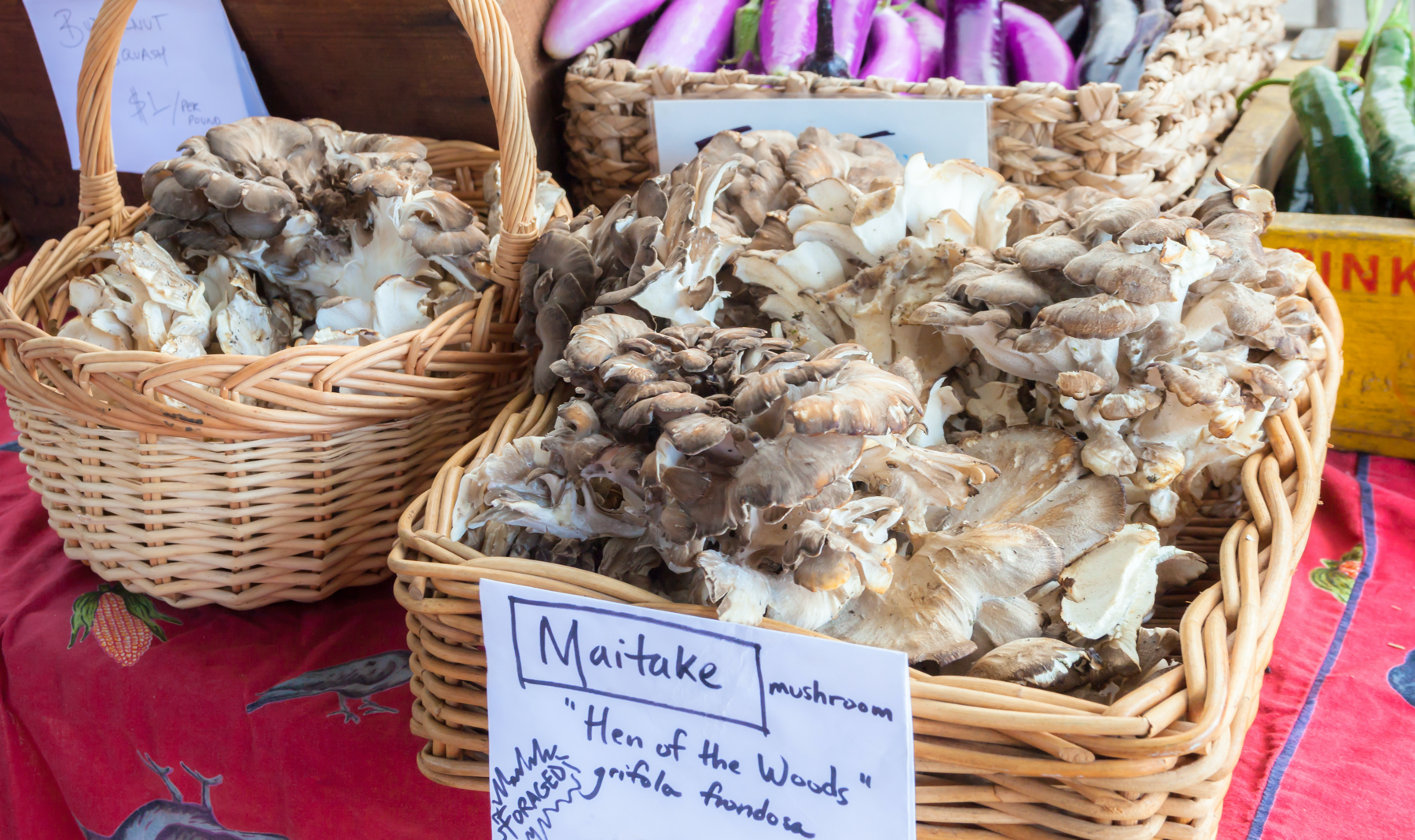
Maitake contains beta glucans that support healthy cell life cycles. It contains immune boosting polysaccharides7.
Research shows the immunomodulating properties of Maitake – mainly the support of immune function by stimulating lymphocytes, natural killer cells, monocytes, and T-Helper cells, all immune cells. Maitake also contains beta-glucans, which support cardiovascular health and reduce cholesterol. A special beta-glucan, SX-fraction, has shown to help manage blood glucose levels and by activating insulin receptors and reducing insulin resistance.
In TCM, Maitake is used to support healthy spleen function and for good qui (life energy or life force).
Nutritionally, Maitake is high in Vitamin D, Niacin (B3), Riboflavin (B2) phosphorus, and potassium.
Tremella (Tremella fuciformis) – The beauty mushroom
%20mushroom-1800.png?width=1800&height=1200&name=AdobeStock_Tremella%20(Tremella%20Fuciformia)%20mushroom-1800.png)
Tremella contains polysaccharides that provide anti-inflammatory, immunoregulating, and antioxidant properties8.
Some research shows that Tremella could protect cognitive health by protecting nerve cells from damage and possibly protect from neurodegenerative diseases like Alzheimer’s. Tremella is used in cosmetics due to its anti-aging and moisturizing properties. It is also thought to protect from collagen loss and protect against the damages of UV rays.
Research has also shown that Tremella has a positive impact on gut health.
Traditionally, they have been used in TCM for disease prevention, immune boosting functions, and for skin health.
Summary
It is important to note, that before taking medicinal mushrooms and herbs, you should always check with your physician(s) to make sure there are no contra-indications to any health conditions you are experiencing and to check for any impact on medications you are currently taking.
Also, there are many places on the internet that promote and sell mushroom supplements. Do your research and make sure the supplements are made from organically grown mushrooms where the fruiting bodies are used, not from myceliated grain.
If you are interested in how these mushrooms can facilitate your health journey, Dr. Evelin Valdez, ND is happy to help. Schedule your appointment with Dr. Evelin, ND today.
To book an appointment with Dr. Evelin Valdez, ND, please visit https://booking.appointy.com/LotusWellness.
To set appointments with Dr. Evelin Valdez and view service pricing, please Use the QR code below by clicking the image or using your QR code reader
To connect with Dr. Evelin on Facebook, visit https://www.facebook.com/RidingHealer
Vibrant Health starts in the kitchen. I can help you change how you approach and view meal time to regain your Vibrant Health one day at a time.
Blessing - Dr. Evelin Valdez, ND
References:
1. Lai PL, Naidu M, Sabaratnam V, Wong KH, David RP, Kuppusamy UR, Abdullah N, Malek SN. Neurotrophic properties of the Lion's mane medicinal mushroom, Hericium erinaceus (Higher Basidiomycetes) from Malaysia. Int J Med Mushrooms. 2013;15(6):539-54. doi: 10.1615/intjmedmushr.v15.i6.30. PMID: 24266378.
2. Lu Y, Jia Y, Xue Z, Li N, Liu J, Chen H. Recent Developments in Inonotus obliquus (Chaga mushroom) Polysaccharides: Isolation, Structural Characteristics, Biological Activities and Application. Polymers (Basel). 2021 Apr 29;13(9):1441. doi: 10.3390/polym13091441. PMID: 33947037; PMCID: PMC8124789.
3. El Sheikha AF. Nutritional Profile and Health Benefits of Ganoderma lucidum "Lingzhi, Reishi, or Mannentake" as Functional Foods: Current Scenario and Future Perspectives. Foods. 2022 Apr 1;11(7):1030. doi: 10.3390/foods11071030. PMID: 35407117; PMCID: PMC8998036.
4. Benson KF, Stamets P, Davis R, Nally R, Taylor A, Slater S, Jensen GS. The mycelium of the Trametes versicolor (Turkey tail) mushroom and its fermented substrate each show potent and complementary immune activating properties in vitro. BMC Complement Altern Med. 2019 Dec 2;19(1):342. doi: 10.1186/s12906-019-2681-7. PMID: 31791317; PMCID: PMC6889544.
5. Tuli HS, Sandhu SS, Sharma AK. Pharmacological and therapeutic potential of Cordyceps with special reference to Cordycepin. 3 Biotech. 2014 Feb;4(1):1-12. doi: 10.1007/s13205-013-0121-9. Epub 2013 Feb 19. PMID: 28324458; PMCID: PMC3909570.
6. Roszczyk A, Turło J, Zagożdżon R, Kaleta B. Immunomodulatory Properties of Polysaccharides from Lentinula edodes. Int J Mol Sci. 2022 Aug 11;23(16):8980. doi: 10.3390/ijms23168980. PMID: 36012249; PMCID: PMC9409024.
7. Roszczyk A, Turło J, Zagożdżon R, Kaleta B. Immunomodulatory Properties of Polysaccharides from Lentinula edodes. Int J Mol Sci. 2022 Aug 11;23(16):8980. doi: 10.3390/ijms23168980. PMID: 36012249; PMCID: PMC9409024.
8. Arunachalam K, Sreeja PS, Yang X. The Antioxidant Properties of Mushroom Polysaccharides can Potentially Mitigate Oxidative Stress, Beta-Cell Dysfunction and Insulin Resistance. Front Pharmacol. 2022 May 5;13:874474. doi: 10.3389/fphar.2022.874474. PMID: 35600869; PMCID: PMC9117613.


